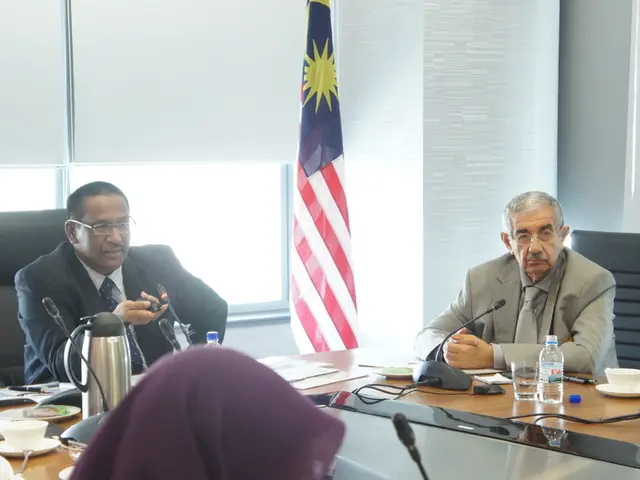China's Role in United Nations Peacekeeping Operations in Africa: Interpreting Beijing's Actions
China's Expanded Role in UN Peacekeeping Missions
China is increasingly playing a significant role in United Nations peacekeeping missions, particularly in Africa. As of February 2021, China is the ninth leading contributor of troops to UN peacekeeping, with 2,464 blue helmets deployed across various missions.
One of the key locations where Chinese troops are stationed is war-torn South Sudan. Over 1,100 PLA troops, primarily trained infantrymen, are deployed there, ready to face threats associated with the ongoing civil war. China's involvement in South Sudan is not solely humanitarian; it aims to secure economic and strategic interests, contribute to global peace and stability, and enhance its international image and influence.
China's investments in Africa are a primary concern, and its peacekeeping forces are often deployed to safeguard these investments. This is evident in South Sudan, where Chinese troops are protecting investments from the state-owned China National Petroleum Corporation (CNPC). In the Democratic Republic of the Congo, China controls the rare earth minerals market, thanks to friendly contracts from the government that allow for vast resource extraction from the country's eastern regions.
China's increased commitment to UN peacekeeping is also yielding strong returns. For instance, the appointment of Chinese Ambassador Xia Huang as the UN's special envoy for the Great Lakes region is a testament to the returns China is reaping from its investment in peacekeeping.
Moreover, China's strategy of using UN peacekeeping to advance its own priorities is working. It has strengthened bilateral and multilateral cooperation and increased oversight and protection of its economic investments. Chinese peacekeepers are deployed in some of the UN's most dangerous operations, including the missions in the Democratic Republic of Congo, South Sudan, Darfur, and Mali.
However, some critics argue that deploying peacekeepers to safeguard one's own investments and bolster one's own reputation cannot be considered anything short of interference. Major Thomas Dyrenforth, a US Army foreign area officer, suggests that Western policymakers can develop informed strategies to maximize China's participation within the UN system while countering its ability to gain a competitive advantage.
In Mali, China's relationship building and security presence support its future economic interests, which remain central to China's ongoing effort to extend the Belt and Road Initiative (BRI) across West Africa. China highlights the PLA's participation in UN peacekeeping as a tangible example of its responsibility within the international system.
As China continues to expand its role in UN peacekeeping, it is expected to seek greater leadership roles at the UN headquarters. Widespread rumors suggest China's lobbying efforts to have a Chinese national lead the Department of Peace Operations. As China's influence grows, it will be interesting to see how it shapes the future of global peacekeeping and international relations.








